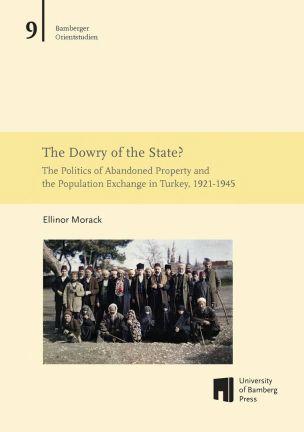The dowry of the state? The Politics of Abandoned Property and the Population Exchange in Turkey, 1921-1945
Morack, Ellinor – 2013
When the Greeks and surviving Armenians of present-day Turkey were forced to leave their homeland in 1922, the movable and immovable property they had to leave behind became known as „abandoned property“(emval-i metruke). In theory, this legal term implied that the absent owners continued to enjoy their property rights and were represented by the state. In practice, however, their houses, fields and belongings were stolen. They were used for the immediate housing needs of the remaining population, distributed among the rich and powerful and sold in public auctions. Initially, only a small part of abandoned property was under control of the new Ankara government, which was eager to use it as a source of revenue for the empty state coffers. Before it could do so, however, the government had to deal with various forms of active and passive resistance: homeless people and refugees squatted „abandoned“ homes and fields, and members of parliament initially refused to pass laws that would have legalized government administration of „abandoned“ property. From 1924 onwards, the property compensation for among incoming migrants from Greece (the so-called exchangees) threatened the financial interests of the state and pitted the newcomers against the existing population. By focusing on all these aspects of the „abandoned property“ question and the multiple forms of resistance against its administration by the state, this book offers unique insights into the social and political history of early republican Turkey.


